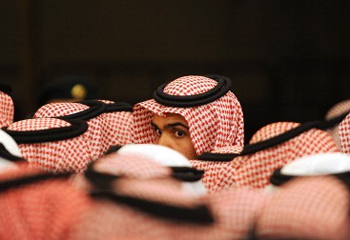 Jeddah, Jul 4: Saudis are now working in other Gulf Cooperation Council (GCC) countries particularly Kuwait. In contrast, very few GCC citizens work in the Kingdom.
Jeddah, Jul 4: Saudis are now working in other Gulf Cooperation Council (GCC) countries particularly Kuwait. In contrast, very few GCC citizens work in the Kingdom.
In 2012, a total of 4,854 Saudis worked in GCC countries, 2,825 if them in Kuwait, according to a report from the General Organization for Social Insurance (GOSI).
The report said that 3,191 Saudis worked in the public sector in GCC countries, with 1,663 in the private sector. Kuwait had 1,169 Saudis working in their private sector. According to the report, there were 210 Saudis working in the United Arab Emirates (UAE), 12 in Qatar, 23 in Bahrain and 10 in Oman.
In contrast, only 1,413 GCC citizens worked in Saudi Arabia including 721 Kuwaitis, 501 Bahrainis, 150 Omanis and 18 Qataris. There were no UAE citizens working in the Kingdom. In addition, all GCC workers in the Kingdom worked in the private sector.
Saudi Arabia is considered a rapidly growing economy, with its multibillion-riyal projects and vast businesses.
According to the Global Wage Report 2012/13 issued by the International Labor Organization, there is a large difference in wages between GCC citizens and non-nationals because of the “Arabization” process taking place in the region, which seeks to increase the proportion of local employees.
Noura Al-Turki, an organization development manager at NESMA Holding, said Saudis should be proud of those seeking work in other countries.
“It is positive to see Saudis compete in the overseas job market rather than in the Kingdom. In the current globalization age, all companies are searching for talented people regardless of their nationality. Even though we have the strongest economy in the GCC, Saudis should work everywhere without being restricted by borders,” she said.
“The new generation of Saudis is very optimistic and always looking to have new experiences in the job market, which is why they work abroad.”
Al-Turki said the Kingdom needs more training centers offering special programs for employees.
She said some Saudis do not consider the Kingdom an attractive place to work. They complain of low wages, unsettled working hours, and discrimination by expatriate bosses.
Mohammed Al-Tawi, general manager of human resources at Taajeer Company, said companies must stop employing expatriates for top jobs in the Kingdom, at the expense of Saudis. He believes this has frustrated Saudis, leading them to seek jobs outside the country.
He believes that the "Saudi work environment is unhealthy for talented job seekers. If we have a look at the government sector, we will see there is no competition, with all employees getting equal promotions and equal salary raises. Such unfair evaluations have forced many Saudis to work in other GCC countries, in the private and government sectors.”
Despite the fact that Saudi Arabia offers the most job opportunities for expatriates, many prefer to work in other GCC countries because of the differences in lifestyle.
According to the survey, Saudi Arabia is the third-favored work destination after the UAE and Qatar. Expatriates prefer Dubai, Abu Dhabi and Doha as the best cities for living. Jeddah, Riyadh and Dammam are low on the list of preferred places to work.






Comments
Add new comment